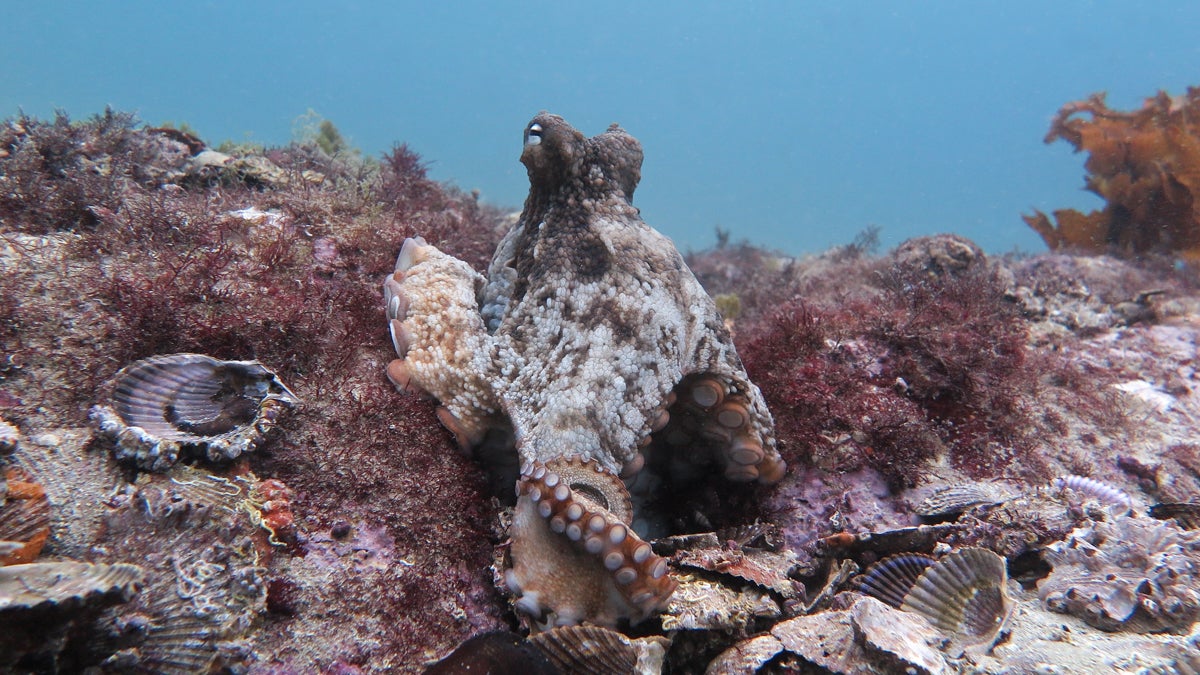Thinking without a centralized brain: the intelligence of the octopus
Listen
Instead of having a brain like humans
An octopus does not think with its arms, per say, but it comes pretty close. The majority of octopuses’ neurons are not centrally located in their heads, but rather spread throughout their bodies.
Peter Godfrey-Smith is a professor of philosophy and the author of “Other Minds: The Octopus, The Sea, and the Deep Origins of Consciousness.” He explains that octopuses have a decentralized nervous system that, unlike the human nervous system, doesn’t include a brain.
“The arms of an octopus seem to have some degree of autonomy. They’re able to sort of make their own way.”
Godfrey-Smith acknowledges that this concept may be difficult to fully grasp. He says, “It’s very natural to think in terms of a kind of definite self… and it’s hard to even think about what it might be like to be a far more decentralized or distributed kind of intelligence. And that’s one of the ways in which octopuses really sort of probe our thinking about the nature of the mind.”
Godfrey-Smith is fascinated by octopuses because they are simultaneously vastly different from humans while also being incredibly similar. He argues that we shouldn’t be hesitant to anthropomorphize octopuses, at least a little. “There’s been a tendency in some parts of biology of so rigorously avoiding anthropomorphizing that the animals, in a way, get kind of undersold,” he says.
Indeed, octopuses have intelligence and curiosity. They can solve puzzles, unscrew the lids of jars, and escape confined spaces. Godfrey-Smith says octopuses “often sort of reach out an arm to explore a human who might be in front of their den. They’re just very exploratory and inquisitive animals, and I think of this as a point of real similarity between us and them.”
According to studies conducted by scientists Jennifer Mather and Roland Anderson, Octopuses can also distinguish between human faces and react accordingly. Other scientists have determined that octopuses have individual traits.
“Recent work in behavioral biology has found quite a lot of sense in the idea that animals do differ with respect to what could be called personality—so the distinction between shy individuals and bold individuals, individuals prone to a kind of stressful response to things and others that are not,” Smith says.
These similarities between octopuses and humans are particularly curious given the octopus’ evolutionary history. Humans and octopuses share a common ancestor that lived approximately 600 million years ago. Since then, we have evolved independently—thus the hugely different nervous systems.
However, Godfrey-Smith points out that this means octopuses acquired similar characteristics in an entirely different manner. He delights in this evolutionary complexity, declaring, “They’re not complicated because they’re our kin; they’re complicated because they evolved all that stuff along their own line from scratch.”
WHYY is your source for fact-based, in-depth journalism and information. As a nonprofit organization, we rely on financial support from readers like you. Please give today.







